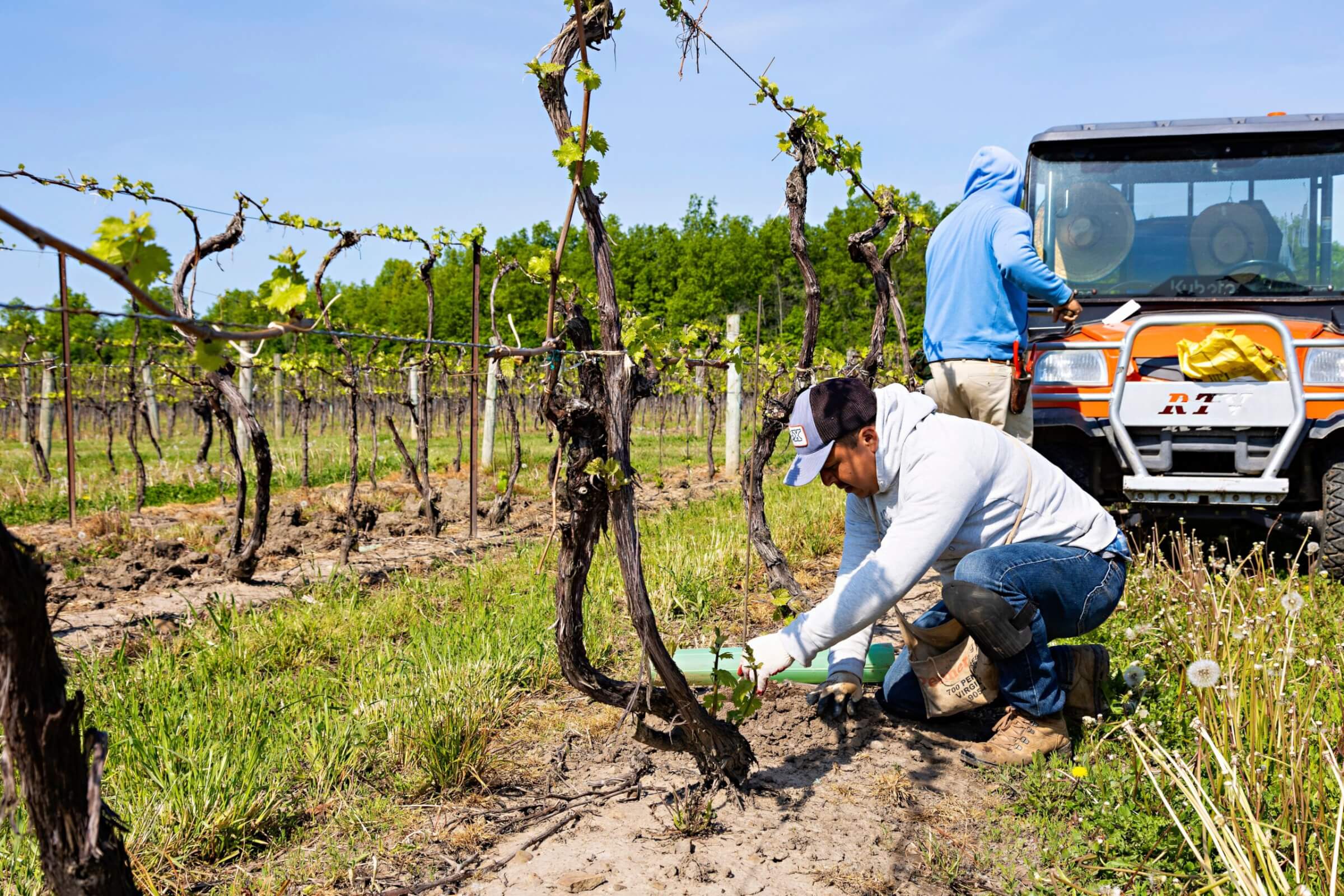Canada’s Seasonal Agricultural Worker Program (SAWP) began in 1966 when over 200 Jamaicans were brought to Ontario to help with apple harvesting. Since then, the SAWP, and more recently the federal government’s Temporary Foreign Worker (TFW) program, have been integral in ensuring there is labour available to fruit and vegetable farmers who need the help. We are often asked why farms need migrant labour and why growers can’t just hire Canadians instead. In this blog, we’ll examine the reasons why growers often turn to migrant workers and the challenges they face in sourcing local workers.
Canadian labour first
Before Canadian growers are allowed to hire workers using the SAWP or TFW program, they must prove that they have made every effort to fill their open jobs with Canadian workers. This requirement can be temporarily suspended by government when the labour market for a sector is deemed so tight that local hiring is considered unrealistic for all practical purposes (as is currently the case for agriculture until the end of June 2024). The reality is, most Canadian job seekers live in urban centres, far from the farms where workers are desperately needed. That makes these types of positions chronically difficult to fill and even after hiring foreign workers, farms continue to have jobs they can’t fill.
Manually intensive labour
Fruits and vegetables are very delicate. You’ve probably dropped your apple or pear on the floor at some point and been disappointed to see the bruise that resulted. Because of this, jobs like harvesting, pruning trees, tying vines, and many more require a lot of careful touch and intensive labour. While the technology on farms continues to grow, and many crops including potatoes and carrots can be harvested by machinery, there are still a lot of crops that require the delicate touch and need to be harvested by hand including asparagus and apples.
Time-sensitive
Farm work is also very time-sensitive: with fluctuating weather and crops that are perishable, a lot of work must be done in a short amount of time, making for long days. If a crop is ready to harvest on a weekend, for example, that’s when that work needs to be done – waiting until Monday could mean the crop has spoiled and is no longer suitable to be sold to consumers.
During peak times of the year, farm workers work long hours. To a lot of people, the hard work and long hours are not what they’re used to or want to do. For many workers coming through the SAWP and TFW program, long hours are what they expect and want to do, especially if their seasonal work only lasts several weeks (e.g. harvest or other seasonal work like planting, etc.), leaving them with a limited window in the year to earn money to support their families at home.
Importance
Migrant farm workers are the backbone of the fruit and vegetable industry in Ontario. Without their work we wouldn’t be able to enjoy the abundance of produce grown across our province. With More than a Migrant Worker, we aim to highlight these remarkable individuals, providing them with a platform to share their stories with us.

